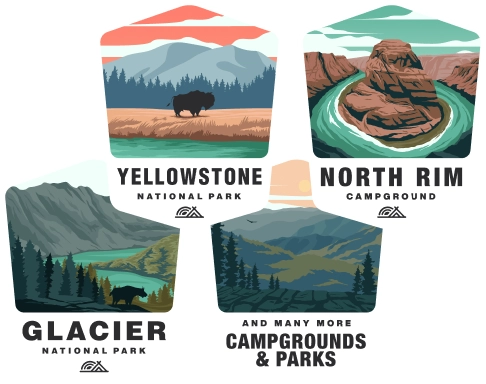Camping at Nature's Campsites
Nature's Campsites Overview
Nature's Campsites likely refers to a hypothetical or specific campground known for its natural setting and outdoor activities. When planning a camping trip to such a location, there are several key pieces of information you should consider to ensure a safe and enjoyable experience.
Reservation and Check-In
Pre-Booking: Make sure to reserve your campsite well in advance, especially during peak season, as popular campgrounds tend to fill up quickly. Check if the reservation can be made online or if you must call the campsite.
Check-In Times: Take note of the check-in times and ensure that you arrive during the designated hours. Late arrivals may need to make special arrangements.
Campsite Facilities
Types of Campsites: Research the types of sites available (e.g., tent sites, RV sites, cabins) and what amenities they include, such as electric hookups, water access, or a fire pit.
Bathrooms and Showers: Check if the campground provides restrooms and showers, and whether they are communal or private.
Trash Disposal: Find out how waste is managed at the campground. Some sites encourage "pack it in, pack it out," while others have designated disposal areas.
Water Sources: Determine if potable water is available or if you need to bring your own.
Recreational Activities
Hiking Trails: Locate nearby trails, understand their difficulty levels, and learn if any are particularly recommended or require a guide.
Water Activities: If the campsite is near a body of water, consider if there are opportunities for swimming, boating, or fishing, and whether gear rentals are available.
Wildlife Viewing: Inquire about safe practices for wildlife viewing and whether any guided tours are offered.
Other Amenities: Some campsites may offer additional recreational facilities such as playgrounds, sports courts, or organized activities.
Rules and Regulations
Quiet Hours: Observe and respect the quiet hours set by the campground to ensure a peaceful experience for all guests.
Pet Policy: If traveling with pets, check the campground’s pet policy regarding leashes, waste disposal, and areas where pets are not allowed.
Fire Regulations: Before you light a campfire, check the current fire regulations to prevent wildfires.
Alcohol and Smoking Rules: Be aware of any restrictions on alcohol consumption and smoking within the campsite.
Safety Precautions
Wildlife Encounters: Understand what types of wildlife are common in the area and how to store food properly to avoid attracting animals.
First Aid: Bring a first aid kit and be aware of any plants or insects that could cause allergic reactions or injuries.
Emergency Services: Know the location of the nearest hospital or urgent care and have the contact information for local emergency services.
Weather Preparedness: Check the weather forecast and be prepared for sudden changes, particularly if the campsite is in an area prone to severe weather events.
Additional Considerations
Connectivity: Many nature campsites are in remote locations where cell phone service and internet access can be limited or unavailable.
Local Attractions: Research nearby attractions that may be of interest, such as natural landmarks, historical sites, or local restaurants.
Sustainable Practices: Consider engaging in eco-friendly practices, such as minimizing water use, recycling, and adhering to Leave No Trace principles.
Before heading out to Nature's Campsites, make sure to visit their website or contact the management directly to get the most up-to-date and specific information tailored to your chosen location. Always prepare thoroughly, respect the environment, and enjoy the great outdoors responsibly.
